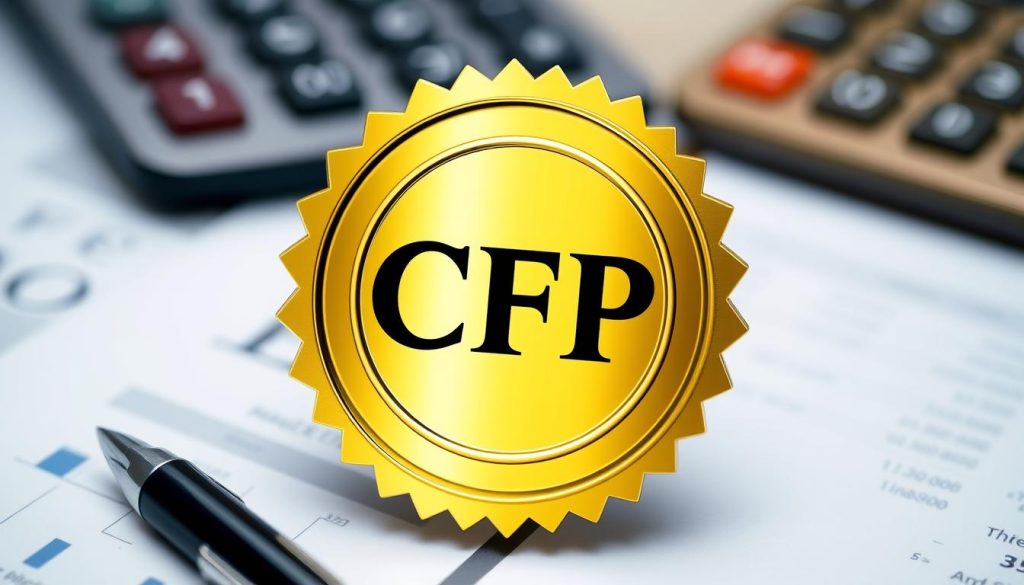Retirement is a big change in life. It’s important to know your goals and financial situation. Dustin Cunningham, a Certified Financial Planner® (CFP®) at Trust Point, says planning is key.
Start by thinking about your lifestyle and legacy plans. Look at your spending, healthcare, and living situation. Also, think about how you’ll share your wealth with your family.
Having an emergency fund is crucial. Cunningham suggests saving 3 to 6 months’ worth of expenses. This fund helps you deal with surprises without touching your retirement money.
Finally, understand all your income and taxes. Look at Social Security, pensions, investments, and more. Planning for taxes can save you money.
Key Takeaways
- Evaluate your lifestyle changes and legacy plans as you transition into retirement.
- Build an emergency fund to cover 3 to 6 months’ worth of living expenses.
- Understand all your income sources and their tax implications to optimize your finances.
- Work with a Certified Financial Planner to ensure a comprehensive retirement strategy.
- Leverage tax-advantaged savings and investment strategies to maximize your wealth.
Understanding Your Retirement Goals and Resources
As you get closer to retirement, it’s key to know what you want and what you have. Do you dream of traveling, trying new hobbies, or making a lasting impact? Knowing your goals helps you plan the money you’ll need for your retirement lifestyle.
Considering Lifestyle Changes and Legacy Plans
Retirement is a big change, and thinking about your lifestyle is important. Will you move to a smaller home, travel more, or give back to your community? Thinking about these changes helps you plan your finances for the future.
You might also want to think about leaving a legacy. Talking to a financial advisor can help you plan how to share your wealth and values with others. This way, you can balance your wishes with the tax implications.
Building an Emergency Fund Before Retirement
- Aim to save 3-6 months’ worth of living expenses in a readily accessible emergency fund before retirement.
- This fund helps you handle unexpected costs, like medical bills or home repairs, without touching your retirement savings.
- Keep your emergency fund in a high-yield savings account or other safe, liquid investments.
Evaluating All Income Sources and Tax Implications
In retirement, you might have income from Social Security, pensions, 401(k)s, and IRAs. It’s crucial to understand the taxes on each source and how they affect your finances.
| Income Source | Tax Implications |
|---|---|
| Social Security | Up to 85% of Social Security benefits may be taxable depending on your total income. |
| Pensions | Pension payments are generally taxable as ordinary income. |
| 401(k)s and Traditional IRAs | Withdrawals are taxed as ordinary income. |
| Roth IRAs | Qualified withdrawals are tax-free in retirement. |
Knowing these tax implications helps you find ways to pay less taxes in retirement. This could include using the 4% rule or adjusting your portfolio allocation.
Optimize Your Tax-Advantaged Savings and Investment Strategies
Using tax-advantaged accounts can help your wealth grow faster. By contributing to 401(k)s and Roth IRAs, you can reduce your taxes. This lets your money grow more over time.
For 2024, you can put up to $7,000 in an IRA, or $8,000 if you’re 50 or older. 401(k)s have a limit of $23,000, or $30,500 with the catch-up. The total you and your employer can contribute is $69,000, or $76,500 with the catch-up.
Think about how different investments are taxed. Long-term investments have lower tax rates of 0%, 15%, or 20%. Tax-managed funds and ETFs can reduce your taxes. Corporate bonds are best in tax-advantaged accounts. REITs are usually in taxable accounts.
Tax-loss harvesting is a smart move. It lets you sell investments at a loss to lower your taxes. You can use up to $3,000 of net losses each year to offset your income.
| Investment Type | Tax Treatment |
|---|---|
| Municipal Bonds | Tax-exempt at the federal level, and potentially state and local levels |
| Index Funds and ETFs | More tax-efficient due to lower capital gains distributions |
| Corporate Bonds | Better suited for tax-advantaged accounts |
| REITs | Typically held in taxable accounts |
By optimizing your tax-advantaged savings and investments, you can keep more money. Talk to a certified financial planner to create a plan that fits your goals and tax situation.
Automate Your Finances with a Certified Financial Planner
Automating your finances can change the game in reaching your goals. Setting up automatic transfers and payments makes managing money easy. This helps you save and invest with little effort. A certified financial planner can help you reach new heights in financial discipline.
Many financial apps and tools offer powerful automation features. For example, Wealthfront is rated 4.9 by Investopedia. It has a $500 account minimum and fees of 0.25% for most accounts. It also offers automated portfolios, individual stock investing, and more.
Betterment is rated 4.7 by Investopedia. It has a $0 account minimum for investing and a $10 minimum to start investing. Fees are 0.25% for accounts with at least $20,000 or $250 per month. The Premium account offers unlimited access to certified financial planners for accounts with at least $100,000.
Automation can also help in other financial areas. Many cell phone providers offer discounts for autopay. Student loans can get a 0.25 percentage point interest rate reduction with autopay. Autopay for credit cards ensures you avoid late fees.
Apps like Parthean can take your financial automation to the next level. It offers seamless bank account integration and personalized financial plans. Parthean simplifies financial management by automating savings, bill payments, and investment strategies.
“Automating your finances with the help of a certified financial planner can free up mental space and provide valuable insights, empowering you to make smarter decisions and achieve your financial dreams.”
So, embrace the power of automation. Let a certified financial planner guide you towards a more secure and prosperous financial future.
Choose a Certified Financial Planner Wisely
Finding the right certified financial planner (CFP) is key for managing your money well. First, check their credentials, experience, and what they specialize in. Make sure they have the CFP® certification, which shows they’ve had advanced training and follow ethical rules.
Also, look at their education. An MBA or JD can show they really know their stuff about money.
It’s also key to know how they get paid. Fee-only planners charge you directly, while fee-based planners might get money from products they suggest too. Knowing this helps make sure they’re looking out for you, not just making money.
Last, make sure your CFP is a fiduciary. This means they have to put your needs first. This is important for trust and making sure your financial plan fits you perfectly.
Checking Credentials, Experience, and Specializations
- Look for the CFP® certification, which shows advanced training and ethical standards
- Consider the planner’s educational background, such as an MBA or JD, for deeper financial expertise
- Inquire about their specializations, as some focus on areas like retirement, estate planning, or taxes
Understanding the Planner’s Compensation Structure
- Fee-only planners are compensated solely through client fees
- Fee-based planners may receive commissions from recommended products in addition to fees
- Knowing the compensation structure helps ensure your planner’s interests align with your financial well-being
Ensuring the Planner is a Fiduciary
Make sure your CFP is a fiduciary. This means they legally have to act in your best interest. It’s important for trust and making sure your financial plan is right for you.
Conclusion
Starting your journey to financial security and success? Working with a certified financial planner (CFP) can make a big difference. They know how to help you with retirement planning, investment strategies, and more.
A CFP can create a financial plan just for you. They’ll help you save more, pay less in taxes, and protect your money for the future. You can trust them because they follow strict ethical and professional rules.
Ready to build your financial future or improve your current plans? A CFP has the knowledge and tools to help you reach your goals. Get professional financial advice and start building a secure and happy future.
FAQ
What are the key considerations for retirement planning?
How can I set retirement goals and plan for my desired lifestyle?
What are the benefits of tax-advantaged accounts for retirement savings?
How can automating my finances help me reach my goals?
What should I look for when choosing a certified financial planner (CFP)?
Source Links
- Certified Financial Planner Hacks: How to Get the Most Out of Your Money
- Financial Planners Share Their Top 5 Money Tips and Tricks – FPFoCo
- What Is Retirement Planning? Steps, Stages, and What to Consider
- Financial Planning for Retirement: Steps, Plans, and Rules
- Retirement Planning: A 5-Step Guide for 2024 – NerdWallet
- Tax-Efficient Investing: A Beginner’s Guide
- Effective tax-saving strategies for investors | Vanguard
- Best Robo-Advisors for September 2024
- Spring-Clean Your Finances With Some Automation – NerdWallet
- Money Automated – Parthean
- How To Choose A Financial Advisor
- 1703.SU
- How to Choose a Financial Advisor – NerdWallet
- Certified Financial Planner vs Fiduciary: Understanding the Key Differences – Diversified LLC
- Understanding the Role of a Certified Financial Planner


